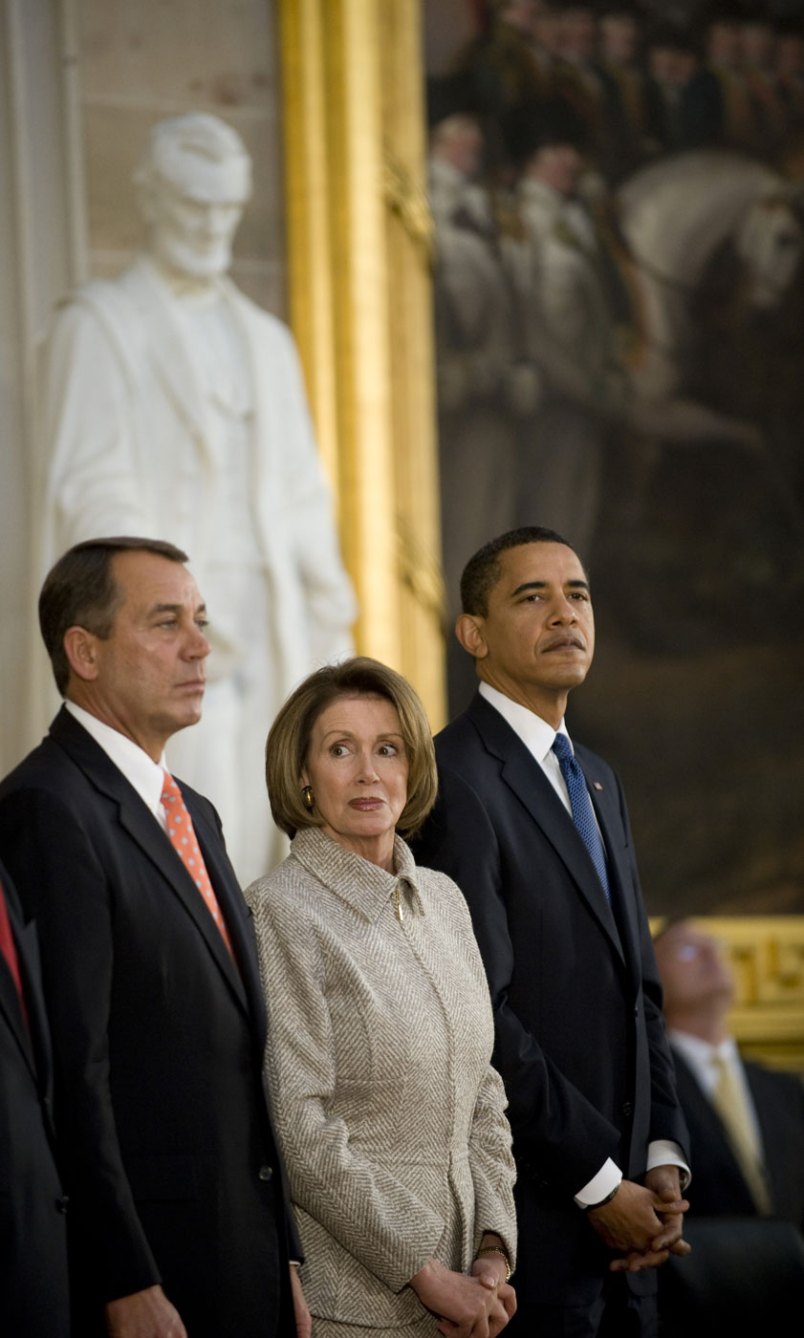When Congress returns from August recess, high on their list of priorities will be figuring out what to do about the Bush tax cuts. They’re scheduled to expire at the end of the year and, if that happens, it will look and feel like an across the board tax increase — a scenario the GOP is happy to peddle to anxious voters. It’s shaping up to be another round in the perennial fight between Republicans and Democrats over the size of government and economic inequality. But it’ll also be a fight about debt. In the end, Congress will choose between a number of options, each of which will blow a big hole in the deficit. The question is how big will it be.
Here are the four possibilities.
The White House Plan
President Obama and Democratic leaders on Capitol Hill want to preserve most of the Bush tax cuts, with the exception of those benefiting high income earners. Compared to letting all the tax cuts expire, that’ll increase the deficits by over $3 trillion over 10 years. But with the economy suffering, and Obama hamstrung by his pledge not to raise taxes on the middle class, this is the most Democrats will do for now.
The Republican Plan
Republicans are trying — and to some extent succeeding — at cowing Dems into extending the tax cuts for everybody. The difference is that the GOP wants to make them permanent, blowing a long-term hole into the country’s budget with the hope of forcing major spending cuts in the future. Over 10 years, their plan would add nearly $4 trillion to the deficit compared with letting the tax cuts expire completely.
Wait, And Then Cut
Between the White House and the Republican plans are a couple other compromise options. One, floated by several House and Senate Democrats, is to extend the top-bracket tax cuts for two years, until the economy has had a chance to recover. This plan has what they view as the added benefit of allowing them to avoid a political fight over taxes so close to the November election.
Phase The Tax Cuts Out Over Time
Another similar option — proposed by influential economist Mark Zandi — is to phase out the tax cuts for the rich starting in 2012. “Only the top 3 percent of households would have to pay higher taxes if the president got his way, but this rarefied group currently accounts for a fourth of consumer spending,” Zandi wrote in the New York Times. “If they pull back, even a bit, the recovery could be derailed.”
This is where the fight on the Hill is likely to be centered — and yet progressive economists say it’s a poor option.
Dean Baker of the Center for Economic and Policy Research, say the compromise options are “smoke and mirrors.” If you’re going to give people money during hard economic times, he says, it should be because they’re likely to spend it. In economic-speak, that’s their marginal propensity to consume.
“The marginal propensity to consume does matter, but even if high income households have a low MPC (which they do), a small change in the MPC will have on outsized impact on consumer spending since this group accounts for such a large share of that spending,” Zandi says.
“Essentially he is agreeing that their MPC is low, but saying that tax cuts will make them happy so they might spend a lot,” Baker says. “That is not the way economists, including Zandi, ordinarily do economics.”










